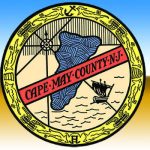On Tuesday, October 8, the Herald editorial team and some of the Cape Issues team members held our annual meeting with our congressman, Jeff Van Drew, following a tradition of many years of doing so.
Why do we meet? He wants to understand what are our primary concerns, and we desire to solicit his advice and the use of his bully pulpit and his engagement to drive forward the items which we believe to be of benefit for our county.
Included in his explanation of the state of things in our nation’s capital, was an item which he said has not been reported in the media, that 50 to 60 of the Congressmen and Congresswomen vote via proxy, without being present. He finds that disturbing because it does not afford the interaction with other members to discuss the issues prior to voting. How are they to come to an understanding of various points of view on an issue without that interchange? I ask the question, can that be a small part of the problem with the dysfunction of Congress?
After Congressman Van Drew spoke, and prior to the Q & A, I had an opportunity to summarize for the Congressman some of the primary topics we at the Herald and Cape Issues have been grappling with. Below, I will focus on infrastructure and education.
If we desire to return to a thriving and balanced community as a county, people must be able to easily come and go from our county. This is truer now than ever before. With the advent of Covid, we are seeing numbers of people and families deciding to remain here after the traditional close of the summer season. It is fair to guess that most of these people retain their bonds with their employment and schools elsewhere, and can do so via the internet.
Is that likely to become the new normal post–Covid? From an economic development perspective, we certainly hope so. To the degree that people can live here and work elsewhere, our economy will benefit via their engagement and spending. But these people retain significant attachments to their other community; if we facilitate that ongoing attachment via modern roads in and out of Cape May County, we will foster their ability and desire to remain, at least a portion of the year. To the degree that we require some of them to drive the winding and unsafe roads laid out three-quarters of a century ago, we will impede that desire to remain.
As we all know, we live in a beautiful, highly desirable county, which others would also like to enjoy year-round. If we want that, we need to do our best to achieve it. In improving our roads, we would not only be encouraging economic development, we would be making our county safer for evacuation in times of severe storms.
One of the ladies present stated, however, that none of her friends desire to see modern roads built, referring to the completion of Route 55. That is understandable; modern roads bring more people; if one likes things as they are, he doesn’t want to see crowds. But we are losing population, and many of those being pushed out are our youth who cannot afford homes here; thus, the increasing age of our population. This is a sticky wicket, but we must find a balance.
ANOTHER issue is our bridges; originally built with federal money, we now need federal and state dollars to help us replace or rebuild them.
AND FINALLY, I brought up the challenge the education of our youth. We are now slated to lose millions of dollars in state aid to Cape May County schools. This necessitates rethinking how we educate our children, to find a way to do an ever-better job with less money.
Any congressman has a very limited ability to address any given issue, but non-partisan discussions like this work to move the process forward.








